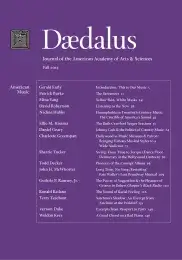The Power of Suggestion & the Pleasure of Groove in Robert Glasper’s “Black Radio”
This essay places the important Robert Glasper Experiment recording “Black Radio” (2012) within its artistic, commercial, and critical contexts. As a project that combines genres, “Black Radio” did more than challenge different communities of listeners; it invited them to see how Glasper’s sonic juxtapositions could be logically aligned. Jazz, hip-hop, R&B, and gospel merge in “Black Radio” to form a stylish, forward-looking contribution that won popular and critical successes. Glasper and his ensemble toy with the social contracts that have established boundaries around sonic language; indeed, he makes their territories feel seamless and natural. Because of the success of the project, we may be witnessing a post-genre moment that disrupts traditional ideas about music that have been preciously held in the industry since it emerged in the late-nineteenth century.
“Changing the game!” exclaimed the press photographer at pianist Robert Glasper’s standing-room-only appearance at World Café Live in Philadelphia in the spring of 2012. “Yeah, no doubt,” a middle-aged man shot back in enthusiastic agreement. The midsized auditorium was filled with an interracial, intergenerational crowd of listeners enveloped in the mesh of sound worlds that Glasper presented with both commitment and ease.
The audience’s enthusiasm for the Robert Glasper Experiment’s landmark 2012 release Black Radio (Blue Note)–and its accompanying promotional tour–was affirmed by the American music industry’s arbiters of taste. To much surprise, Black Radio received a Grammy Award nomination in two categories: Best R&B Performance for “Gonna Be Alright (F.T.B.),” featuring Ledisi; and Best R&B Album. Even before it debuted, there was steady buzz about what the recording’s aesthetic approach and its critical reception might mean to the future of jazz. Now, in the wake of its release, it is . . .
